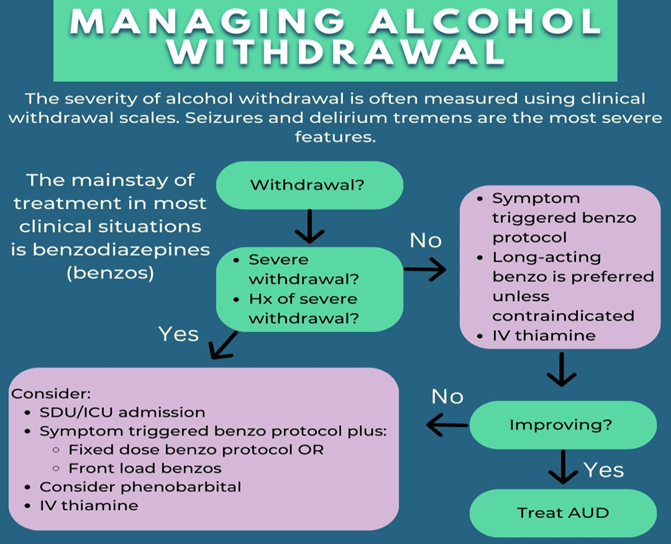A nurse is caring for a client who is taking oral erythromycin. Which of the following statements by the nurse indicates the client is experiencing a common adverse effect of this medication?
"The client verbalizes a ringing in the ears."
"The client reports constipation with abdominal cramping."
"The client had a small amount of yellow emesis."
"The client has swollen lips."
The Correct Answer is C
A. Tinnitus, or ringing in the ears, is a common adverse effect of aminoglycosides such as gentamycin which cause ototoxicity, rather than erythromycin which is a macrolide.
B. Constipation with abdominal cramping, is not a commonly reported side effect of erythromycin; this medication is more likely to cause diarrhea rather than constipation.
C. Common adverse effects of oral erythromycin include gastrointestinal symptoms such as abdominal cramping and nausea. Therefore, the statement indicating the client is experiencing a common adverse effect would be having a small amount of yellow emesis which aligns with the reported side effects of nausea and vomiting.
D. Swollen lips are not a common adverse effect of erythromycin. This symptom may indicate an allergic reaction or another issue unrelated to the medication.
Nursing Test Bank
Naxlex Comprehensive Predictor Exams
Related Questions
Correct Answer is C
Explanation
A. Methylergonovine is not indicated for preventing postpartum infections. Its primary action is on uterine smooth muscle to induce contractions, rather than having antimicrobial properties.
B. While methylergonovine can cause hypertension as a side effect, it's not used to prevent hypertension. It is used primarily to prevent or treat postpartum hemorrhage by promoting uterine contraction.
C. Methylergonovine is a uterotonic medication used to prevent or treat postpartum hemorrhage by causing uterine contractions, thereby reducing the risk of excessive bleeding after childbirth.
D. Methylergonovine does not prevent thromboembolic events; its mechanism of action primarily involves stimulation of uterine smooth muscle contraction rather than affecting blood coagulation.
Correct Answer is D
Explanation
A. Methadone is an opioid agonist primarily used for the management of opioid dependence and chronic pain. It is not indicated for the treatment of alcohol withdrawal or delirium.
B. Acamprosate is a medication used to support abstinence in individuals who have recently stopped drinking alcohol. It is not typically used to manage acute alcohol withdrawal symptoms such as delirium tremens.
C. Disulfiram is a medication used as an aversive therapy to deter alcohol consumption by causing unpleasant reactions (e.g., flushing, nausea, vomiting) when alcohol is ingested. It is not indicated for the treatment of alcohol withdrawal or delirium.
D. Lorazepam is a benzodiazepine commonly used to manage alcohol withdrawal symptoms, including delirium tremens. It acts by enhancing the inhibitory effects of gamma- aminobutyric acid (GABA) in the central nervous system, thereby reducing the symptoms of alcohol withdrawal such as seizures.

Whether you are a student looking to ace your exams or a practicing nurse seeking to enhance your expertise , our nursing education contents will empower you with the confidence and competence to make a difference in the lives of patients and become a respected leader in the healthcare field.
Visit Naxlex, invest in your future and unlock endless possibilities with our unparalleled nursing education contents today
Report Wrong Answer on the Current Question
Do you disagree with the answer? If yes, what is your expected answer? Explain.
Kindly be descriptive with the issue you are facing.
